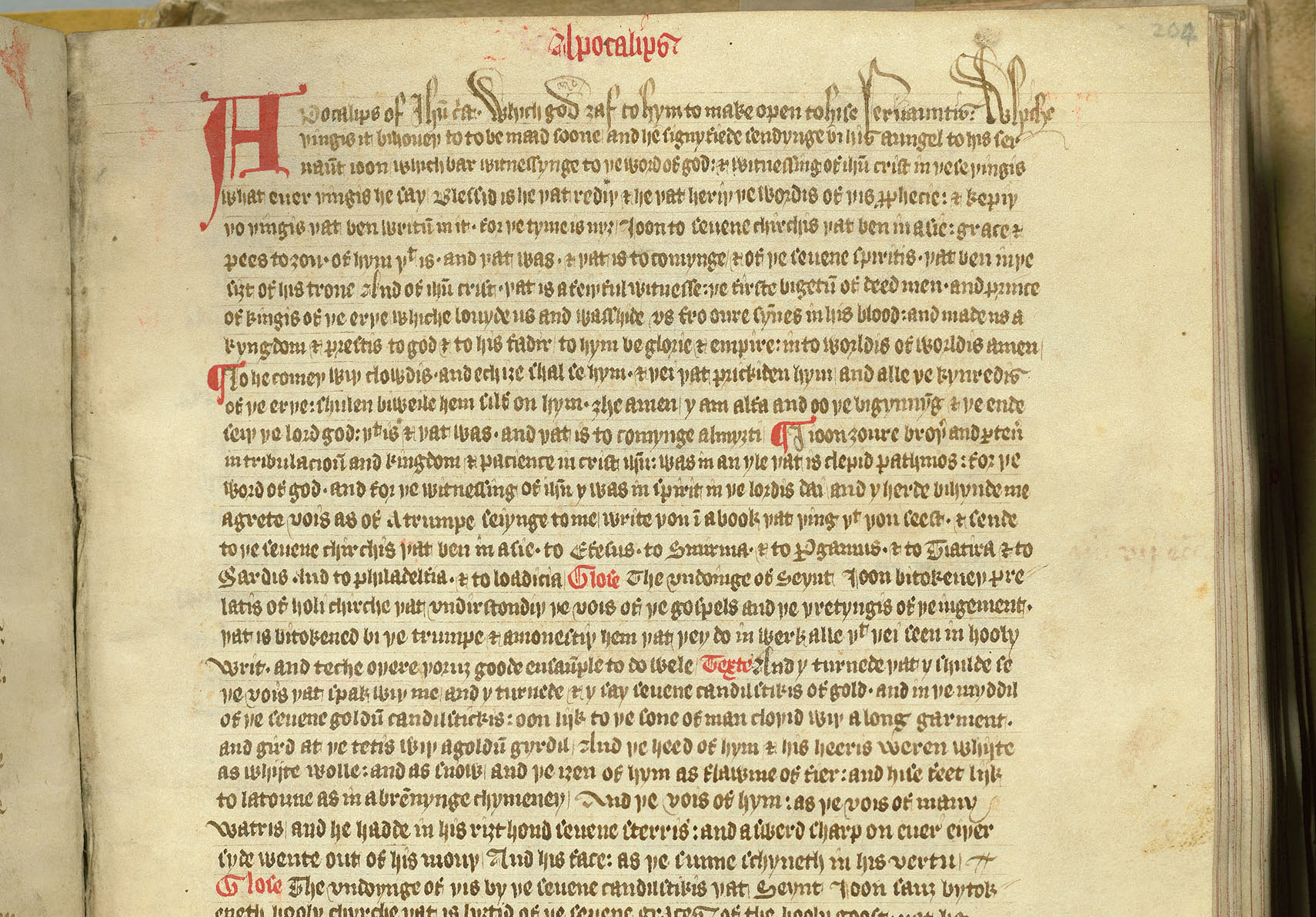Dr. Ethan Campbell Producing Middle English ‘Revelation’ Translation
Dr. Campbell is on sabbatical this spring working on a new book: a production of an early Middle English translation of the book of Revelation.

Dr. Ethan Campbell is spending spring 2021 on sabbatical leave to produce a Middle English translation of the book of Revelation. Campbell is an associate professor of English and literature and coordinator of the English major at King’s. The English Apocalypse: A 14th-Century Translation of the Book of Revelation will be published by Medieval Institute Publications in 2022.
The work is part of the Middle English Texts series, a collection of paperbacks designed to make key texts available to students. The series includes works by Chaucer and the Gawain Poet as well as lesser-known medieval manuscripts. Campbell explains that the text he is producing was translated into Middle English in the mid-1300s, predating the more famous Wycliffite Version produced in the 1390s (named for the reformer John Wyclif).
Campbell describes his interest in this particular translation of Revelation:
About ten years ago, when I was doing research for my Ph.D. dissertation at the British Library in London, I came across a manuscript of this early translation, which I’m calling The English Apocalypse. I later learned that there are 18 surviving manuscripts containing it, most of them in the British Library or the Bodleian Library at Oxford University. However, one copy is held at Columbia University’s Rare Books and Manuscripts Library, here in NYC. And I learned something very interesting about that particular copy—it comes at the end of a Wycliffite New Testament. So the compiler of this manuscript, in the early 15th century, made a New Testament out of what was then the new Wycliffite Version, but decided to use an earlier translation for the final book.
Why did the compiler do this? Well, it’s a mystery. It might be that the Wycliffite translation wasn’t fully complete yet, or that his copy was corrupt, or that he simply preferred the earlier translation and thought it was superior. In addition, a few verses in this copy of The English Apocalypse have actually been replaced with verses from the Wycliffite Book of Revelation. So whatever the reason might be, it’s proof that the people producing Bibles at this time, and likely the Wycliffite translators themselves, knew about the earlier translation and may even have been using it as a model.
At the time that the manuscript at Columbia was produced, it was actually illegal to produce English Bibles in England (since Bibles were supposed to be in Latin). I find it inspiring to read the words of Revelation handwritten over 600 years ago by a scribe who was risking his life and livelihood to help people read the Bible in their own language.
The book will feature an introduction by Campbell and will include both The English Apocalypse as well as the Wycliffite translation so that scholars, students of Middle English, and Bible translators can compare the works.
For a sampling of the language from the English Apocalypse (Rev. 21:4-5), Campbell selected the following:
“And he schal doun awey alle teeres fro her eyen. And never aftir schal be deth ne wepyng ne cry ne sorewe. For thei ben alle passid. And he that sat on the trone seide, I have alle thing maad newe.”
Dr. Mark Hijleh, provost of The King’s College, says, “Supporting faculty scholarship is an essential part of the King’s mission. Dr. Campbell’s work towards making this Middle English biblical text more available to scholars everywhere is a wonderfully worthy sabbatical project, and we look forward to how he’ll share his research and expertise with students and colleagues when he returns in the fall.”
Featured image: The first page of the English Apocalypse manuscript held at Columbia University’s Rare Books and Manuscripts Library. Image publicly available through the Digital Scriptorium.




